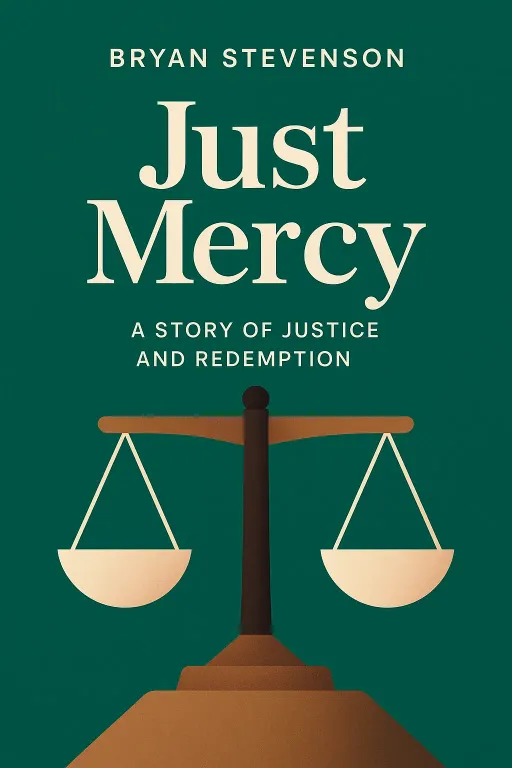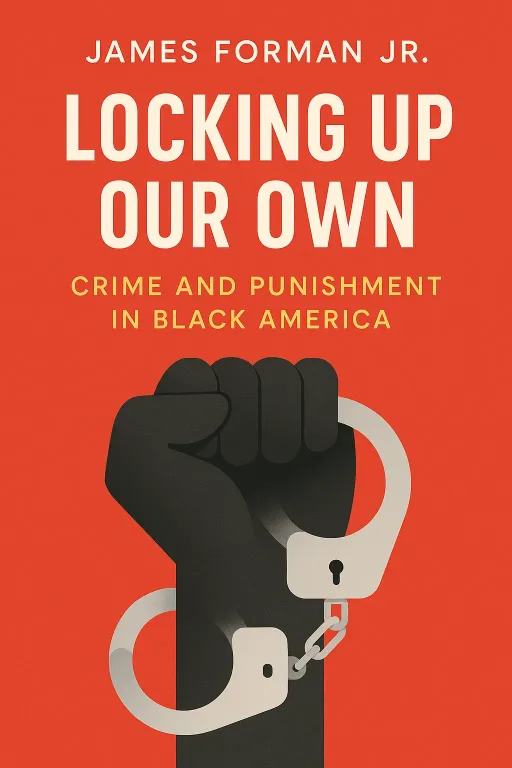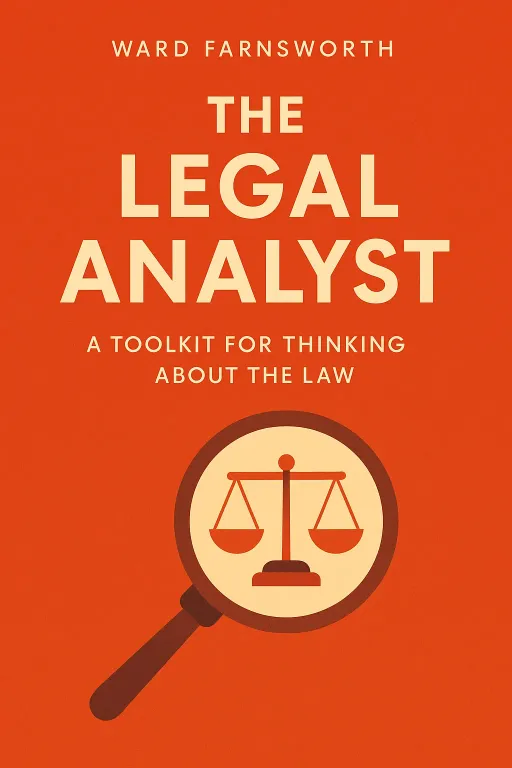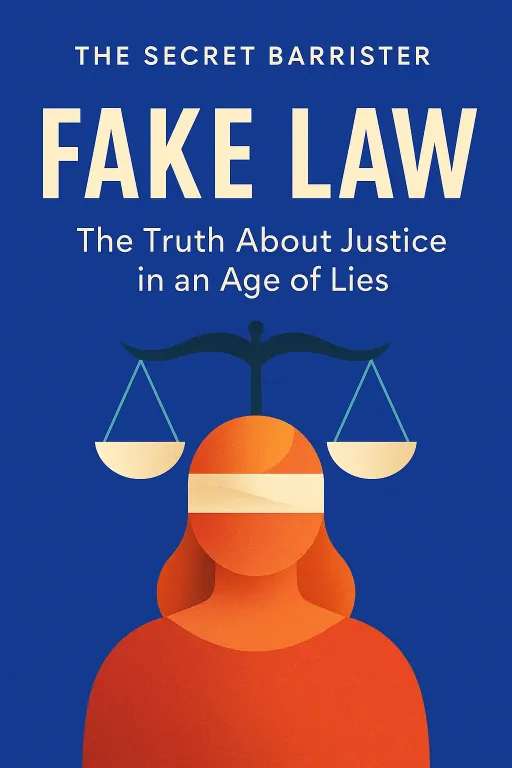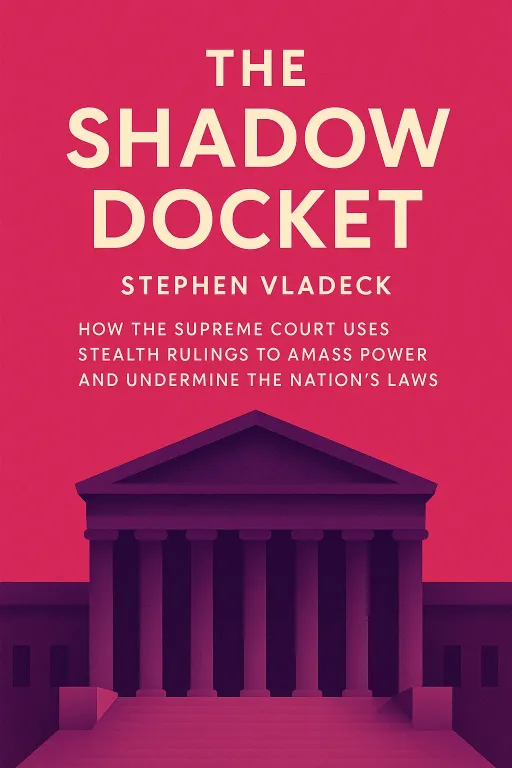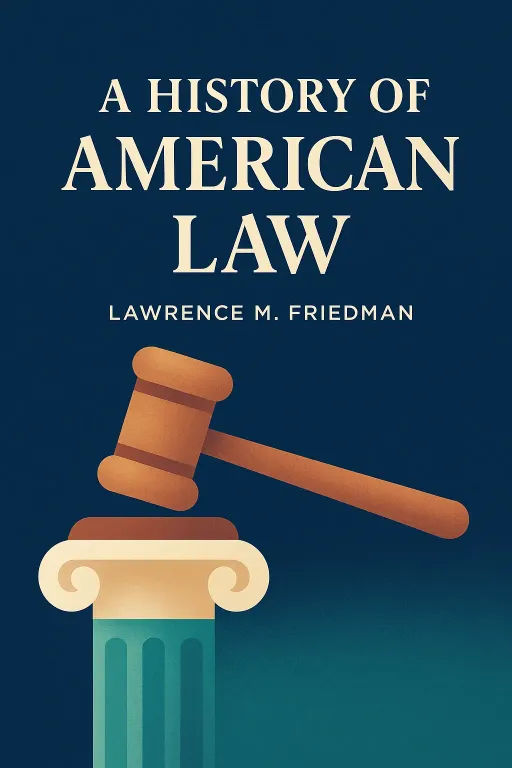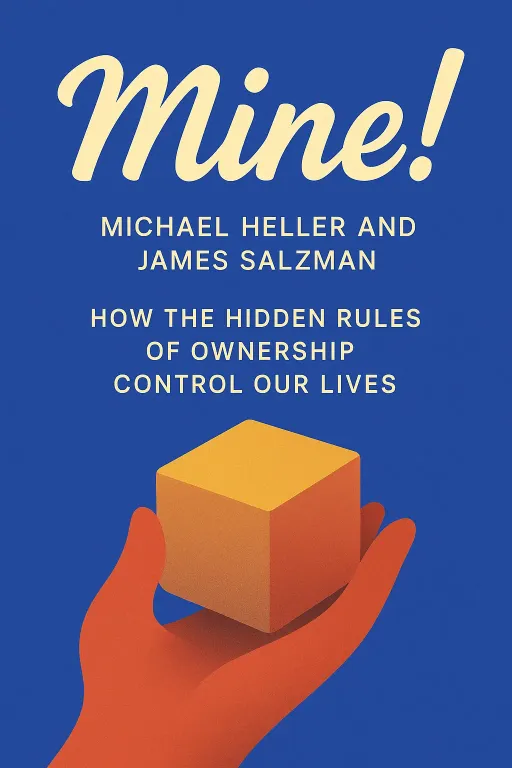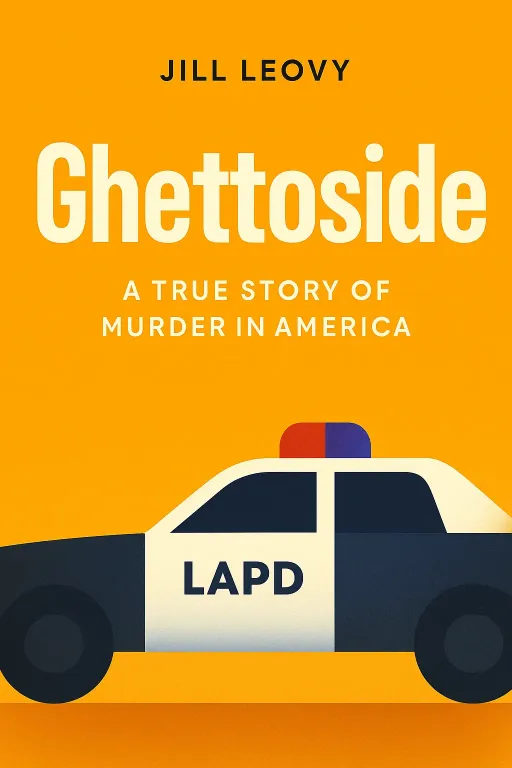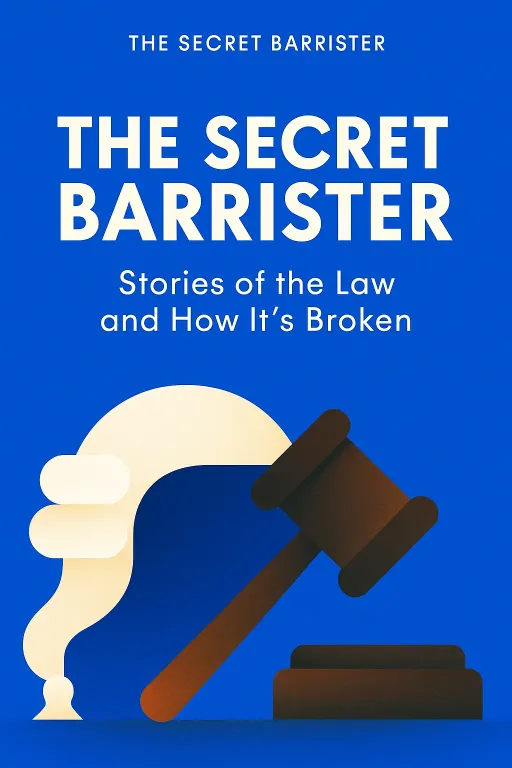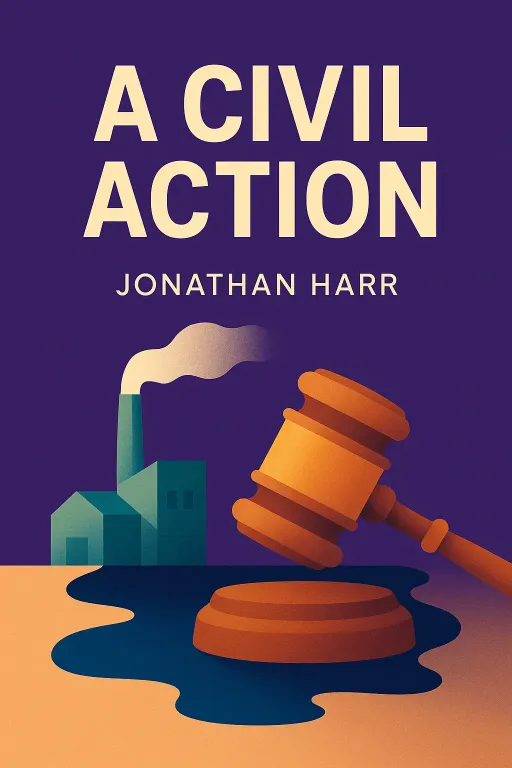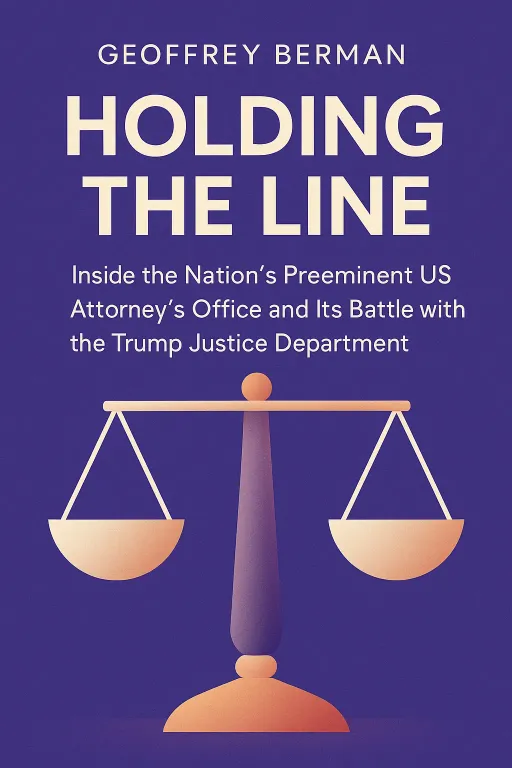
Justice's Blind Spots
12 minGolden Hook & Introduction
SECTION
Michael: Alright, Kevin, here’s a thought experiment. What’s the one legal principle every American knows? The bedrock of our justice system? Kevin: Oh, that's easy. Presumption of innocence, right? Innocent until proven guilty. It's in every TV show. Michael: Exactly. Now, what if I told you that for the people actually investigating crimes, the people on the front lines, that very principle is a professional death wish? Kevin: Hold on, a death wish? That sounds completely backward. How can the foundation of justice be dangerous? Michael: That's the kind of counter-intuitive, high-stakes thinking that fills Doing Justice: A Prosecutor's Thoughts on Crime, Punishment, and the Rule of Law by Preet Bharara. Kevin: Ah, the famous 'Sheriff of Wall Street.' I know he was the U.S. Attorney for the Southern District of New York, which is basically the most powerful prosecutor's office in the country. He took on terrorists, mob bosses, everyone. Michael: Exactly. And what makes this book so compelling is that it's not just a war story memoir. Bharara, an Indian immigrant who became this towering figure in American law, uses his cases to dissect the human machinery of justice—its flaws, its biases, and its moments of grace. It's a book that's been widely acclaimed, and for good reason. It really gets under the hood of what justice means in practice. Kevin: So it’s less about the letter of the law and more about the messy human beings trying to enforce it. Michael: Precisely. And it all starts with the most fundamental, and as Bharara shows, the most difficult part of the process: Inquiry. Just finding out what actually happened.
The Elusive Truth & The Minefield of Bias
SECTION
Michael: Bharara’s first big point is that the truth is incredibly elusive, mostly because we, as humans, are wired to be fooled. We're suckers for a good story, especially when the person telling it looks the part. He has this great term for it: "Urbane Cowboys." Kevin: Urbane Cowboys? That sounds like a terrible band name. Is this like the Fyre Festival guy, but in a really expensive suit? Michael: That's a perfect analogy. It’s about people who project such an aura of success and respectability that our brains just shut off the skepticism meter. The case of Hassan Nemazee is the ultimate example. This guy was the picture of success—a prominent businessman, a huge political fundraiser, friends with senators and presidents. Impeccable reputation. Kevin: Okay, I'm sensing a 'but' coming. Michael: A massive 'but.' In the late 2000s, Citibank calls the FBI. They say, "We think our client, Mr. Nemazee, just defrauded us of $75 million." He'd secured a massive loan using collateral that, it turns out, didn't exist. The catch? He was scheduled to fly to Rome that very evening. Kevin: Oh, a classic escape plan. So the FBI swoops in at the airport, dramatic takedown? Michael: Not at all. They intercept him, and Nemazee is the picture of calm. He's polite, he's reasonable. He says, "Gentlemen, this is all a simple misunderstanding. I'll sort it out." His lawyer, a big-shot attorney, vouches for him. Nemazee is so convincing that they let him go, and he promises to pay the loan back immediately. Kevin: And did he? Michael: He did! The next day, the $75 million is back in Citibank's account. Case closed, right? Kevin: I have a feeling it's not. Where did he get the money? Michael: By walking into another bank, HSBC, and pulling the exact same fraud to get a new loan to pay off the first one. He was a Ponzi scheme of one, using his sophisticated, 'urbane cowboy' persona as his primary weapon. He ended up defrauding banks of nearly $300 million. Kevin: Wow. That's terrifying. It's not just about being a good liar; it's about playing a role so well that people's brains refuse to see the red flags. It’s a bias towards respectability. Michael: Precisely. And that leads to an even more dangerous cognitive trap that Bharara explores: confirmation bias. This isn't just about being fooled by a con man; this is about fooling yourself. And the Brandon Mayfield case is one of the most chilling examples I've ever read. Kevin: Okay, set the scene for me. Michael: It’s 2004. Horrific train bombings in Madrid, killing nearly 200 people. The Spanish police find a plastic bag with detonators and lift a partial fingerprint from it. They can't find a match, so they send it to the best of the best: the FBI's legendary fingerprint lab at Quantico. Kevin: The CSI guys. The ones who are never wrong on TV. Michael: Exactly. The FBI runs the print through their massive database and gets a hit: Brandon Mayfield, a lawyer in Portland, Oregon. One senior FBI examiner makes the identification. Then, following protocol, a second, even more senior expert confirms it. Then, the unit chief himself signs off. It's a 100% positive match. Kevin: So they got their guy. Michael: They thought so. And then confirmation bias kicked in. They start digging into Mayfield's life. They learn he's a Muslim convert. His wife is an Egyptian immigrant. And he once represented a convicted terrorist in a child custody dispute. For the FBI, this wasn't just a fingerprint match anymore; it was a narrative that made perfect sense. Kevin: Oh, I see where this is going. They started fitting the facts to their conclusion, instead of the other way around. Michael: It gets worse. They get a secret warrant, they wiretap his house, they search his home, they're building this massive case. Meanwhile, the Spanish National Police get back to them and say, "Hey, we're not so sure about this match. We think you're wrong." The FBI basically tells them, "You're wrong. We're the experts. It's a match." They even bring in a highly respected independent expert, who also confirms the FBI's conclusion. Kevin: Wait, so the FBI's top experts, an independent expert, all of them got the fingerprint wrong? How is that even possible? Michael: Because the initial identification, combined with Mayfield's background, created such a powerful narrative that they subconsciously explained away any inconsistencies in the print. They were seeing what they expected to see. Two weeks after Mayfield is arrested, the Spanish police definitively identify the fingerprint. It belongs to an Algerian national named Ouhnane Daoud. Kevin: Unbelievable. That's a system failure, not just a human error. Michael: That's Bharara's whole point. He says the greatest danger to justice isn't a few bad apples. It's the slow, creeping rot of bias in good, competent people who are under immense pressure to get a result. It's the grinding machinery of an investigation that develops a momentum of its own.
Justice Beyond the Law & The Moral Calculus
SECTION
Kevin: Okay, so if our ability to find the 'truth' is that flawed, if the FBI's best can make a mistake that huge, how does anyone ever get prosecuted? It feels like the whole system should just grind to a halt. Michael: That's where the human element becomes even more critical. Justice isn't just about facts; it's about judgment, discretion, and sometimes, making what Bharara calls an 'unholy alliance.' This brings us to the world of snitches, or as they're formally known, cooperating witnesses. Kevin: Ugh, the snitches. It feels so... dirty. You're basically letting a criminal off easy to catch another one. How is that justice? It's a point some readers of the book really struggle with. Michael: It's a moral quicksand, for sure. Bharara acknowledges it's one of the most fraught parts of the job. But sometimes it's the only way to dismantle a complex criminal enterprise from the inside. To show the ideal, he talks about the 'gold standard' investigator, a legendary mob-buster named Kenny McCabe. Kevin: The anti-snitch, I'm guessing. Michael: In a way. McCabe was an FBI agent who was so famously honest, so fair, that even the mobsters he was chasing respected him. They knew he would never lie or frame them. He built his cases brick by brick, with unimpeachable evidence. There's this incredible story where he's on the witness stand in a mob trial. The defense lawyer is trying to paint him as this sneaky government agent and asks sarcastically, "Mr. McCabe, how would you like it if all of your phone conversations were secretly taped by the government?" Kevin: That's a trap. How did he answer? Michael: Without missing a beat, McCabe looks the lawyer dead in the eye and says, "I got nothing to hide. Do you?" The courtroom just erupted. It was this perfect encapsulation of his integrity. He was the gold standard. Kevin: Okay, so McCabe is the platonic ideal of an investigator. But most cases aren't that clean, right? You're dealing with messy people and incomplete evidence. Michael: Exactly. And that's why prosecutors need other tools. Bharara talks about the innovation of using wiretaps—a tool traditionally reserved for mob and drug cases—in a totally new arena: Wall Street insider trading. Before him, it just wasn't done. Kevin: Why not? Michael: The argument was that these were complex financial crimes, not violent felonies. But Bharara's office realized that a conspiracy to commit fraud is still a conspiracy. The conversations might be about stock trades instead of drug deals, but the criminal intent is the same. They started using wiretaps and it completely cracked open a world of corruption that had been almost impossible to prove otherwise. It was a huge, controversial shift, but it worked. Kevin: So it's about applying old tools in new ways. But what about when the evidence is just... not there? What about the pressure to get a conviction, especially in a huge, high-profile case? Michael: That, Bharara says, is the ultimate test of a prosecutor's integrity. And he faced it head-on. He tells the story of investigating the two most powerful men in New York State politics at the time, Assembly Speaker Sheldon Silver and Senate Majority Leader Dean Skelos. The public pressure was immense. The media was watching every move. His own team of prosecutors was worried about letting him down if they couldn't make the cases. Kevin: I can imagine. The boss is the famous 'Sheriff of Wall Street,' and you're afraid you're going to come up empty. Michael: Right. And Bharara sensed this. So he called a meeting with both investigative teams. And he told them, "I don't care if you bring a case or not. Your only job is to do the right thing. To follow the facts and the law. If we can't make the case, we walk away. That is not failure. That is success." One of the prosecutors later told him that was the day he was most proud to work there—not the day they got the conviction, but the day his boss told him that justice was more important than victory.
Synthesis & Takeaways
SECTION
Kevin: So, when you put it all together, the book seems to be saying that our justice system is this incredibly fragile thing, constantly at risk from our own human failings—our biases, our egos, our desire for a simple, clean story. Michael: That's the core of it. Justice isn't a machine that spits out verdicts. It's a human process, a constant struggle. Bharara argues that the rules and procedures are crucial, but they're nothing without fair-minded people exercising judgment, wisdom, and sometimes, extraordinary courage. Kevin: It makes you think about all the 'judgments' we make in our own lives. We all have confirmation bias. We all get fooled by appearances. The stakes are just lower than a federal indictment. Michael: Exactly. And Bharara's ultimate message is one of cautious optimism. The system is flawed because we are flawed. But by being aware of those flaws, by demanding rigor, and by valuing integrity over victory, we can strive for something that looks like justice. He closes one chapter with a quote from Oliver Cromwell that Judge Learned Hand wished was written over every courthouse. Kevin: What is it? Michael: "I beseech ye in the bowels of Christ, think that ye may be mistaken." Kevin: Wow. A little humility goes a long way, especially when someone's freedom is on the line. That's a powerful thought to end on. What's one thing you think our listeners should take away and think about this week? Michael: Question your own certainty. The next time you're absolutely sure about something—a person, a situation, an opinion—just pause and ask, 'What if I'm wrong? What am I not seeing?' That's the first step in doing justice, whether in a courtroom or in your own life. Kevin: I love that. A little dose of healthy skepticism for everyone. It’s a great way to challenge ourselves. We’d love to hear what our listeners think—does this give you more or less faith in the justice system? Let us know on our social channels. Michael: This is Aibrary, signing off.
